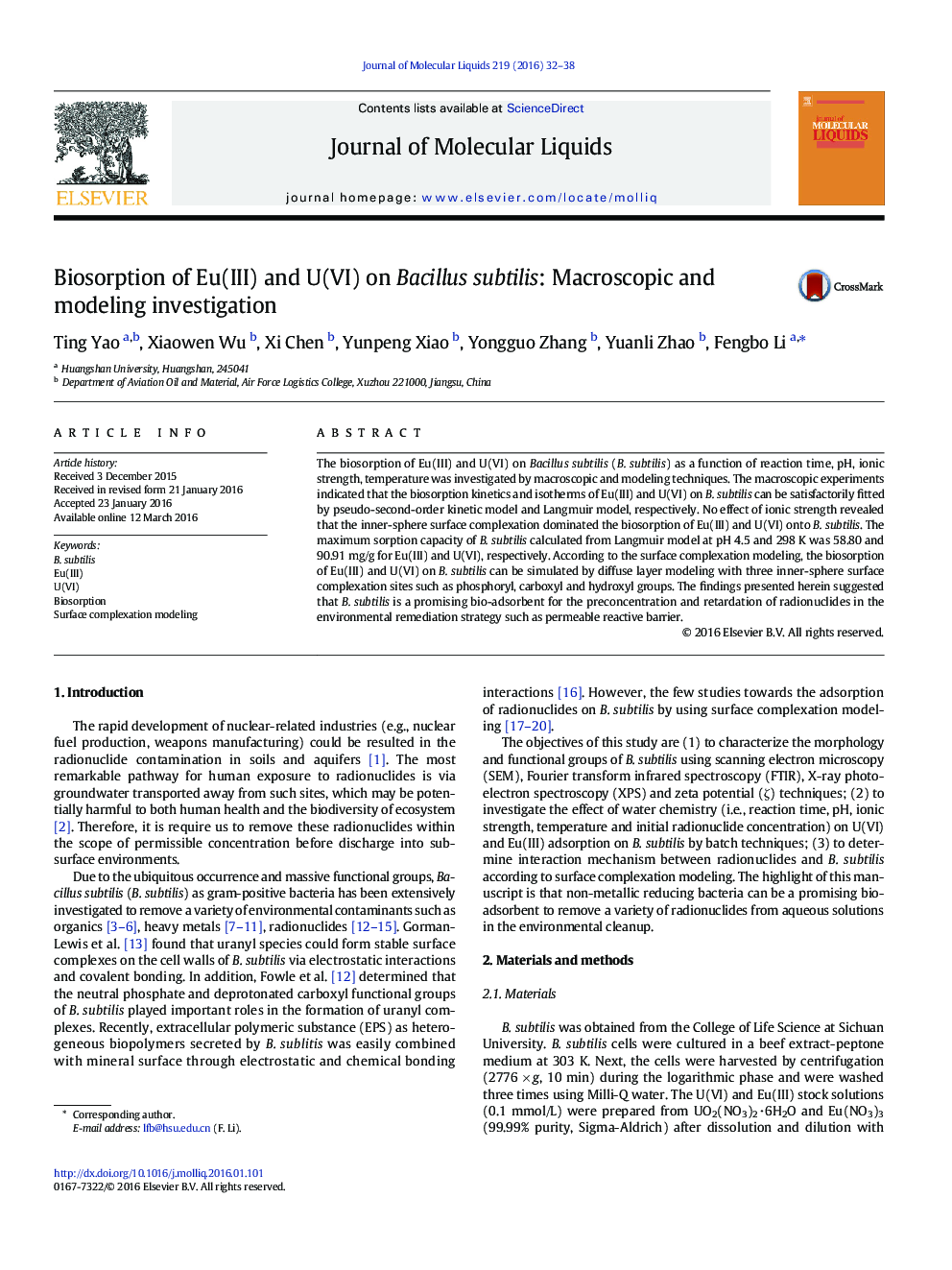| Article ID | Journal | Published Year | Pages | File Type |
|---|---|---|---|---|
| 5410090 | Journal of Molecular Liquids | 2016 | 7 Pages |
Abstract
The biosorption of Eu(III) and U(VI) on Bacillus subtilis (B. subtilis) as a function of reaction time, pH, ionic strength, temperature was investigated by macroscopic and modeling techniques. The macroscopic experiments indicated that the biosorption kinetics and isotherms of Eu(III) and U(VI) on B. subtilis can be satisfactorily fitted by pseudo-second-order kinetic model and Langmuir model, respectively. No effect of ionic strength revealed that the inner-sphere surface complexation dominated the biosorption of Eu(III) and U(VI) onto B. subtilis. The maximum sorption capacity of B. subtilis calculated from Langmuir model at pHÂ 4.5 and 298Â K was 58.80 and 90.91Â mg/g for Eu(III) and U(VI), respectively. According to the surface complexation modeling, the biosorption of Eu(III) and U(VI) on B. subtilis can be simulated by diffuse layer modeling with three inner-sphere surface complexation sites such as phosphoryl, carboxyl and hydroxyl groups. The findings presented herein suggested that B. subtilis is a promising bio-adsorbent for the preconcentration and retardation of radionuclides in the environmental remediation strategy such as permeable reactive barrier.
Related Topics
Physical Sciences and Engineering
Chemistry
Physical and Theoretical Chemistry
Authors
Ting Yao, Xiaowen Wu, Xi Chen, Yunpeng Xiao, Yongguo Zhang, Yuanli Zhao, Fengbo Li,
